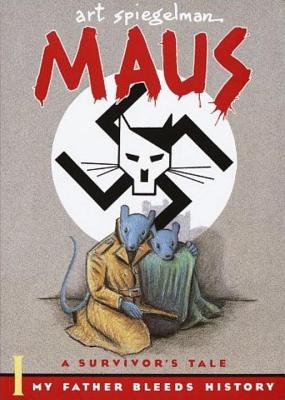April 29, 2015
“Maus” removed from Russian bookstores
by Julia Fleischaker

Copies of Art Spiegelman’s Maus have been removed from Moscow’s bookstores. Image via Penguin Random House
The New York Times reported this week that residents of Moscow were surprised to see that copies of Art Spiegelman‘s Maus had quietly been removed from the city’s largest bookstores.
The government’s plan was simple enough: Rid Moscow of swastikas or any other symbol of Nazism before Victory Day, the celebration of the Soviet Union’s defeat of Germany and the most important political holiday in Russia.
But in the frenzy to comply, bookstores aiming to please the censor found an unlikely victim: “Maus,” the Pulitzer-Prize winning graphic novel about a Jewish family during the Holocaust. Muscovites discovered this week that the book, which bears a swastika on its cover, had been quietly stripped from the shelves of the largest bookstores across the Russian capital.
Maus, the Pulitzer Prize-winning graphic novel, is a satirical novel based on Spiegelman’s father’s experience during the Holocaust, and was just published in Russian in 2013. Jews are drawn as mice, the Nazis depicted as cats, and the whole thing is pretty clearly anti-Nazi. But, there is a swastika on the cover.
City officials said last week that raids were planned before Victory Day to find objects with swastikas and other symbols that “offend people’s religious feeling or question the national dignity of peoples,” both criminal offenses in Russia.
The Respublika bookstore chain confirmed on Monday that it had taken the book off its shelves because it was concerned about the raids and uncertain about the legality of selling the book.
The Moscow Times cites the Facebook page of a Russian writer who tried to buy a copy.
Writer Margarita Varlamova said via Facebook that she had tried to buy a copy of Maus in the Moscow House of Books only to be told by the store worker to come back after May 9, when Russia celebrates the 70th anniversary of the allied victory over Nazi Germany.
“I said, goodness — it’s an anti-fascist novel,” Varlamova said Thursday in her post, adding that the issue was resolved when a security guard brought out a copy of the book under cover of his jacket.
Julia Fleischaker is the director of marketing and publicity at Melville House.